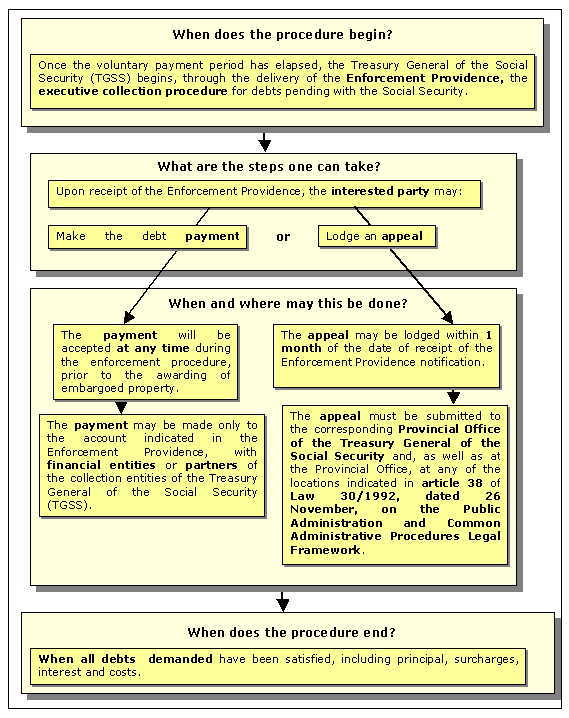Executive Collection
Procedure
General Information
| Purpose: |
At the end of the voluntary payment period, collect any outstanding debts with Social Security through the Enforcement Order and, where applicable, carry out any enforcement actions provided for in law. |
|---|---|
| Subjects: |
People against whom an enforcement procedure is initiated to recover Social Security debts. |
| Forms: |
|
| Documentation: |
|
| Where to make the payment: |
|
| Deadlines: |
Lodging an Appeal for the above mentioned reasons will result in the suspension of the enforcement procedure, without the need to present guarantees, until notification of the outcome of the appeal is received. |
| Effective: |
If the debtor does not interrupt the Enforced Collection procedure within the time period established in the Enforcement Order, they will proceed with the:
If the debtor interrupts the process due to payment or lodging an Administrative Appeal, the following occurs: |
| Termination: |
When the pursued debts have been settled including the principal, surcharges, interest, where applicable, and costs. |
| Other important information: |

 Home
Home